One of the things I love most about Google is not so much answers it provides but the insight about the questions people ask—and in this case the questions about essential oils people are asking.
I compiled the most often asked questions about essential oils Google users are asking —and some of the most frequent questions I’m getting via email. Ready? Let’s check out the answers to some of the most frequently asked questions about essential oils…
Learn more about my favorite essential oils in this post.
If you’re just getting started with essential oils, you should read A Skeptics Guide to Essential Oils. I write it for beginners, just like you!
Questions About Essential Oils (and the answers)
1. Where do essential oils come from?
The short answer is, essential oils come from plants. Essential oils are an oil which has typically been distilled—usually using steam or water—from the bark, leaves, flower, roots, or other parts of the plant. They are highly concentrated oils that contain both the aromatic and chemical properties of the plant.
2. What does it mean when essential oils smell bad?
Some people believe if an oil smells bad to you, it means your body needs it. Or sometimes they think the opposite is true — if an oil smells bad, you shouldn’t use it. Both are a myth.
So what does it mean? All it means is…you don’t like the smell.
I know that sounds oversimplified, but it’s true. There’s a number of essential oils I don’t care for the smell, but still use them because they’ve been helpful (melaleuca for example — I think it’s STINKY!).
3. When do essential oils expire?
Most of your essential will be good for up to 3 years if stored properly. They need to be kept cool, and the lid should always be tightly sealed. There are some oils that are good for 10 years or more, such as patchouli.
The exceptions to this rule are tea tree oils and lemon oils. You can expect those to be good for a year or two, but again, only if they’ve been stored properly.
Essential oils expire because of a process called oxidation. Oxidation is caused by oxygen and moisture. You’ve probably seen it happen on old metal that’s been left outside a long time.
If the smell changes or gets weaker, or you notice they’re cloudy or viscous, they’ve probably gone bad.
The takeaway here is to keep your oils in a cool place. Don’t put oils in the freezer. Contrary to some myths about freezing oils to check whether they’re real, all oils will freeze!
Note: if you keep your oils in the refrigerator, be sure you put the bottles in a sealed glass or plastic container or your butter might taste like tea tree oil (yuck)!
4. Why should I put essential oils on my feet?
Some people say that oils are absorbed faster through the soles of the feet because it has a lot of pores — or because the pores are large. Others say oils put on the bottoms of your feet bypass the liver. There is absolutely no evidence to this.
While it is true that the feet absorb the oils very well, it has nothing to do with how many pores you have or how large they are. The pores on the soles of your feet and those on the palms of your hands do not contain sebaceous glands. In other areas of your body, these glands secrete an oil called sebum which acts a a barrier.
Essential oils will absorb into any part of your skin, but they absorb more fully where sebum is not present. Because of this, the soles of your feet are an excellent place to apply your oils!
5. Why are essential oils called “essential?”
Essential oils is a bit of a misnomer because essential oils are not “essential” to the plant. For this reason, the preferred term by professionals is “volatile oils.” Volatile can mean a lot of different things. In this instance, the term “volatile” refers to a characteristic that the oils possess: they rapidly evaporate in air.
6. Will essential oils hurt plants?
Many people use essential oil sprays to get rid of pests around their homes and in their garden. It’s a great alternative to chemical pest sprays. But, will essential oils kill houseplants?
Plenty of people diffuse their oils in places that have beautiful houseplants in it with no adverse effects. Keep your eye on your plants when you use your diffuser to be sure they’re still thriving, but you shouldn’t have any problem with this!
7. Will essential oils stain clothes?
Not typically. If you are using a dark oil though, it may stain.
8. Can I use essential oils in my house without a diffuser?
You can! There are great ways to use oils without a diffuser — check out 7 of my favorite ideas for using essential oils without a diffuser.
9. Are essential oils the same as fragrance oils?
No, they aren’t. As I mentioned above, essential oils are distilled from plants. Fragrance oils are synthetically created in a laboratory.
A chemist manufactures a scent so it smells like something else. Ever had a candle that smells like apple pie? That was a fragrance oil at work.
Those are the 9 essential oil questions that are blowing up on Google. I hope you found answers you were looking for.
Our family loves and uses essential oils. Does your family? Do you have any fantastic blends you’d share with us? Everyone loves a new way to use oils!
Interested in essential oils? Let’s talk! Click here to learn more about essential oils and how to find good-quality ones for your family.

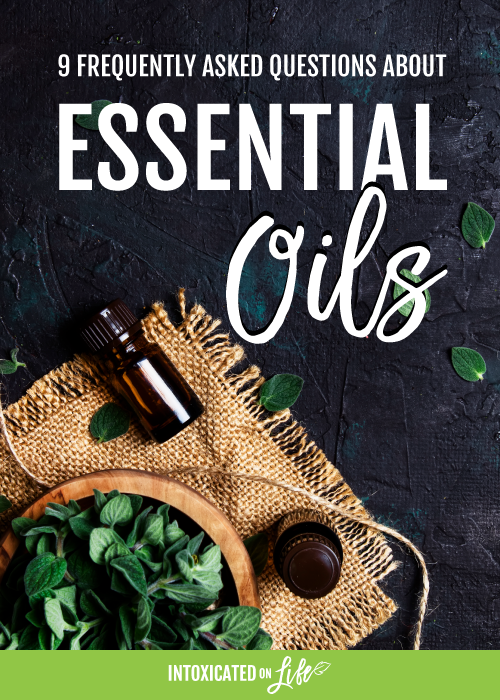
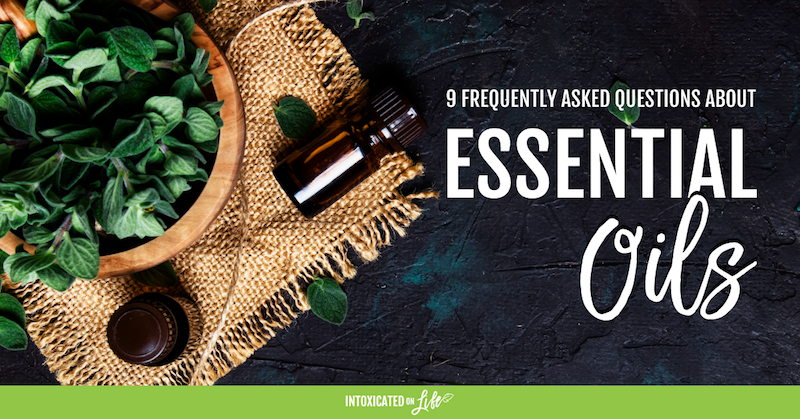
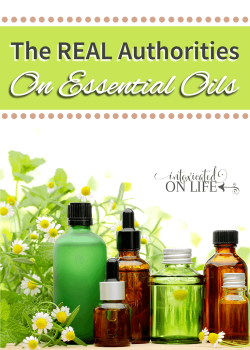
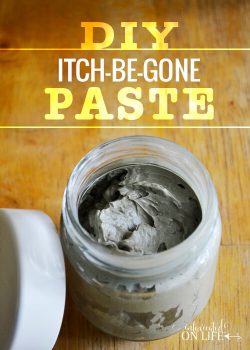
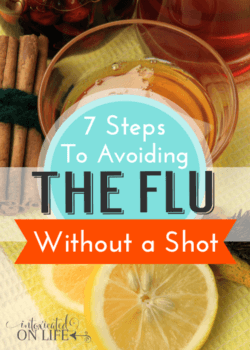
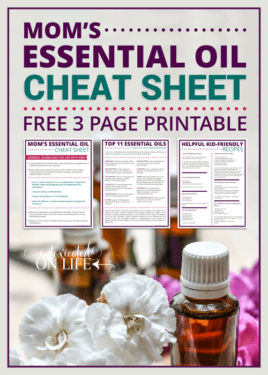



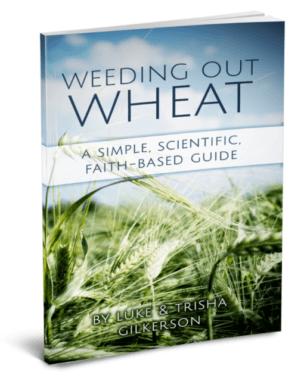

Leave a Comment